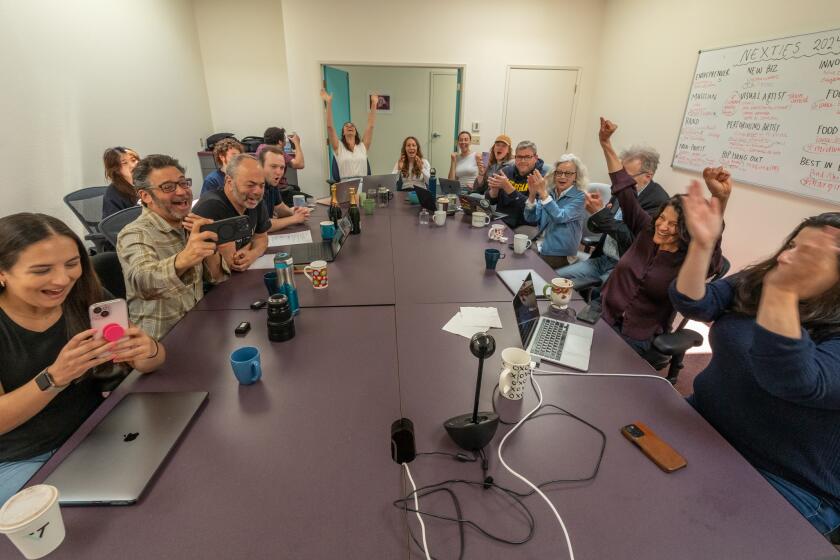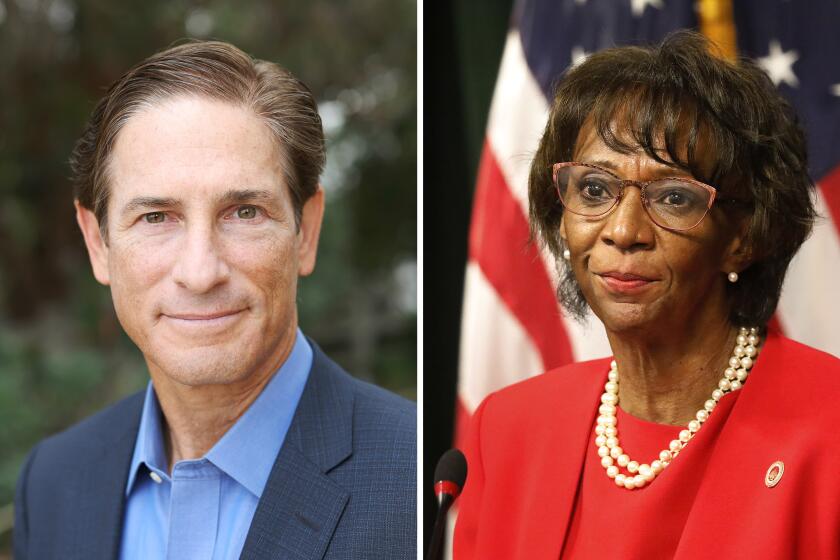The Asian Edge? It’s Confucius.
A former L.A. city councilman once told me that, as a college student, he had toyed with the idea of taking an accounting class. After all, he was good with numbers and enjoyed mental challenges. He signed up for Accounting 101.
But on his first day of class, he noticed immediately that a large number of his classmates were either Asian nationals or Asian Americans. There was no way he could score at the top of the class’ grading curve, he thought -- so he dropped out. The world had gained a politician and lost an accountant.
There are people of Asian descent who are not math whizzes. There are many Asians talented in non-math and non-science fields, and an even larger number who are just average.
Nevertheless, Asian dominance of science prizes and scholarships only reinforces the idea that a special factor accounts for Asian American success in school.
That special factor is Confucius.
So how does a philosopher who died almost 2,500 years ago influence the study habits of students thousands of miles away from his native land?
Confucius (or Kongfuzi -- “Master Kong” in Pinyin Chinese) developed a philosophy that powerfully shaped Chinese society and culture. It offered rules and standards of conduct for governments, families and individuals at a time when feudal Chinese society was chaotic, unstable, crime-ridden and torn by war between states.
Confucius’ system valued honesty, integrity, hard work, modesty and individual responsibility for setting an example. He based his philosophy on respect for authority figures -- emperors, ancestors, teachers and parents. Individuals are expected to obey authority figures, but authority figures are expected to justify their status by adhering to high standards of conduct.
In his career, Confucius advanced through a series of official jobs and occasionally worked as a diplomat and advisor to princes. He proposed that government jobs be filled on the basis of merit, not wealth, social position or family connections. China established a system of civil service examinations (called “the Ladder to the Clouds”) that, in a highly stratified society, opened up a rare path to society’s upper reaches for talented young people.
Starting in his teenage years, a Chinese student would read Confucian classics in history, poetry and philosophy in preparation for the formal examinations that could start him on the road to a brilliant career as a public servant. Confucian teachings linked the exercise of power to a reverence for learning. As an old Chinese proverb puts it, “All walks of life are lowly; only the scholar stands high.”
Confucius left his government positions and spent years in forced exile, teaching and wandering. His later influence was not obvious at the time of his death in 479 BC. But his teachings gained adherents. His beliefs were carried by Chinese immigrants and merchants to other Asian countries and eventually to the U.S.
The belief system that put emperors and ancestors on a high pedestal in traditional China also gives authority to Chinese and other Asian parents in L.A. suburbs to tell their children to study hard for school instead of pursuing the distractions of teen society.
On Yale Street in L.A.’s Chinatown, the building that houses after-school Chinese language and culture programs is named the Confucius School. Confucius may be long gone, but you don’t have to look far to see the power of his ideas.
More to Read
Start your day right
Sign up for Essential California for news, features and recommendations from the L.A. Times and beyond in your inbox six days a week.
You may occasionally receive promotional content from the Los Angeles Times.






